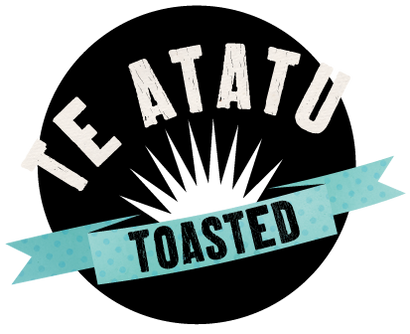Your Cart is Empty

What to eat to beat anxiety
August 20, 2024
This month we are focused on building up our resilience and combating some of the stress many people are under as they deal with increased job insecurity and financial hardship.
Any difficult life situation can cause anxiety – often this is a temporary issue that resolves when the stress passes, however studies show that as many as one in four New Zealanders will suffer from an anxiety disorder
Regardless of what is causing our stress, there are lots of things we can do to feel calmer and less anxious, and one is to choose foods that contain nutrients that support our mental health and nervous system.
It’s one of the reasons I insist on using wholegrains in Te Atatu Toasted cereals. Wholegrains are rich in magnesium and the amino acid tryptophan, both of which have been shown to lessen anxiety and improve mood. They are also good for keeping blood sugar levels steady, which keeps you feeling full longer and stabilises mood. Wholegrains can also be a good source of potassium, another nutrient that plays a role in decreasing anxiety, and Vitamin B.
But wholegrains are not the only foods that will help you keep calm and carry on. Let’s have a look at some of the nutrients we need to keep anxiety at bay, and what foods we should be eating to increase our intake.
Selenium -several studies have shown that people with a higher selenium intake in their diet have lower levels of anxiety and depression.
Foods high in selenium: Brazil nuts, sunflower seeds (I use them in all my mueslis and my grain-free porridge), eggs, mushrooms, brown rice, tuna, chicken and beef.
Vitamin B –each of the B vitamins plays a role in helping your body manage stress symptoms.
Foods high in Vitamin B: Seeds and nuts, dark leafy vegetables, avocado, eggs.
Vitamin D –can also help balance your mood.
Foods high in Vitamin D: Eggs, mushrooms, salmon, tuna
Omega 3– this fatty acid is another nutrient that has been shown to reduce anxiety.
Foods high in Omega 3: Chia seeds, flaxseeds, salmon, sardines, walnuts
Potassium -potassium seems to act as a facilitator in ensuring the brain’s ability to properly utilise serotonin, which is a feel-good neurotransmitter. It can also help regulate blood pressure.
Foods high in potassium: Pumpkin seeds (also in all the Te Atatu Toasted mueslis), bananas, mushrooms, avocados, kumara, zucchini, cooked spinach and broccoli.
Magnesium - a natural muscle relaxer, which helps with anxiety, this mineral can also relieve fear, irritability, and restlessness.
Foods high in magnesium: Leafy greens, including spinach, legumes, nuts and seeds, almonds (a key ingredient in my grain-free porridge), bananas and dark chocolate.
And if you want to drink your way to a relaxed demeanor, opt for chamomile tea, which has proved to be effective in helping with anxiety, depression, and insomnia. Or whip up a turmeric latte - curcumin, the bioactive compound found in turmeric, has been linked to treating anxiety and depression, possibly because it boosts serotonin and dopamine levels.
The gut-brain connection
Often when we are feeling overwhelmed by stress or anxiety, it can seem hard to find energy and focus to eat well. It can be tempting to reach for a large glass of wine rather than a soothing chamomile tea.
But gut changes can actually trigger mood changes, exacerbating our mental health problems.
Digestive experts have discovered that that the gut is an important advisor to the brain – only 10 per cent of the nerves connecting the gut and the brain are sending messages from the brain to the gut. The other 90 per cent are sending messages from the gut to the brain, which is isolated at the top of our body.
These messages give the brain important information about the quality of nutrients we are consuming, what our hormones are doing, how our immune system is working and what’s going on in our blood.
If the gut is signaling there is something not quite right, it can begin to impact brain function. Studies have shown people with ongoing bowel issues are more likely to have a higher incidence of anxiety or depression.
So even if stress is a major factor in your life, try to avoid binging on fast foods, drinking too much alcohol or cutting back on healthy fresh fruit and vegetables. Keep your gut healthy to support your mental wellbeing.
